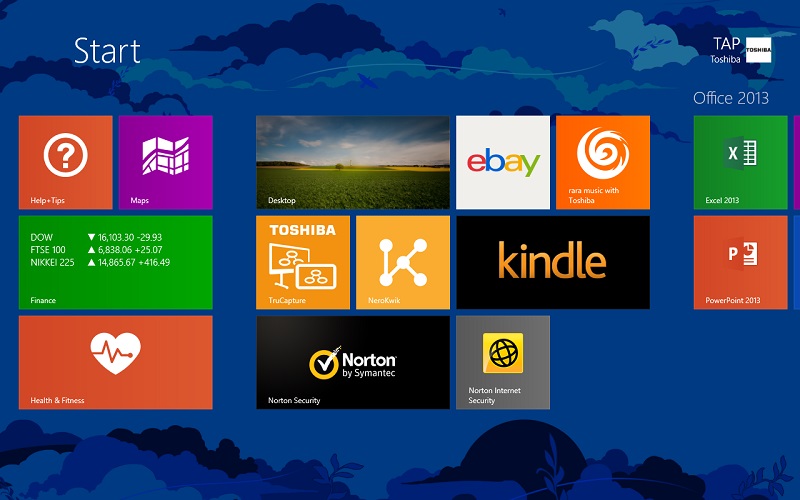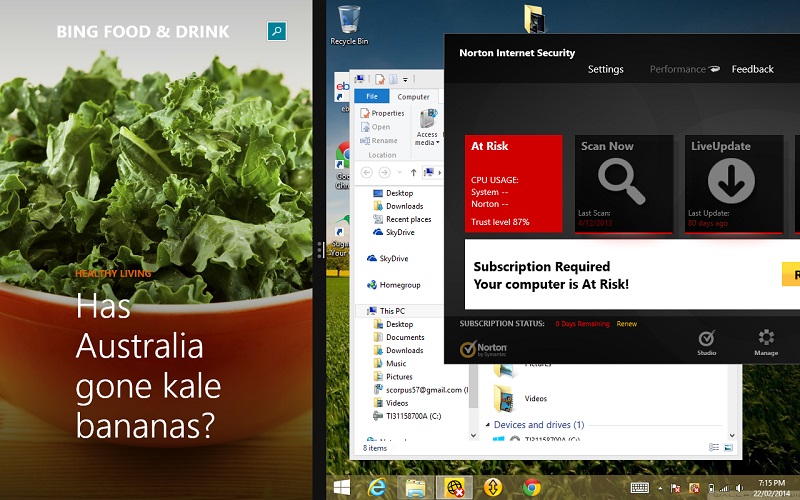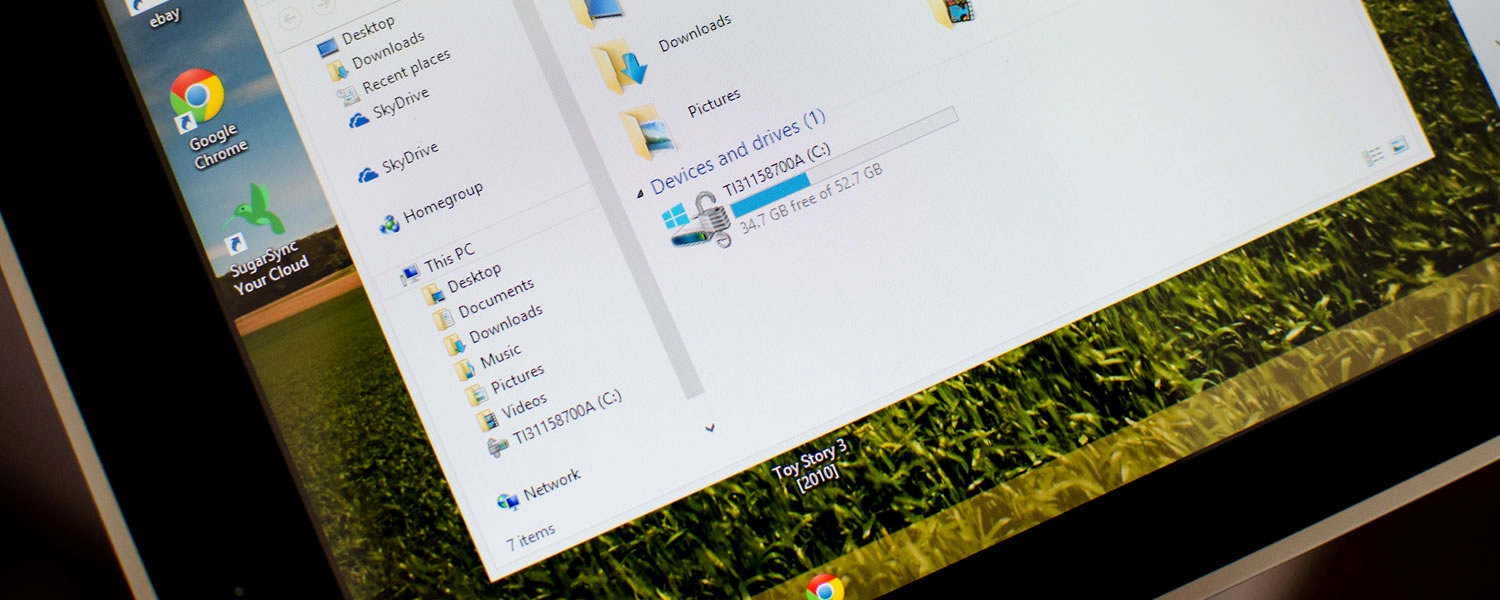Software, Camera
The Toshiba Encore comes loaded with Windows 8.1, so there are no surprises when it comes to the tablet's software. Features such as app snapping and gesture-based multitasking remain extremely useful parts of the Windows ecosystem, especially for power users such as myself that enjoy having Twitter open alongside a web browser on an 8-inch display.
Windows 8.1 comes with optimizations that enhance the experience on smaller-screened tablets. Many areas of the OS now have functional portrait modes, which is critical for this sort of tablet that is mostly held in a portrait orientation. Some apps, such as Bing News, are actually better to use in portrait than landscape, thanks to the work Microsoft has put in.

The applications available through the Windows Store will still be an issue for those who aren't too fussed about Windows 8.1's powerful feature set. Each month the situation does improve, but the quality and range of apps available is still noticeably lower than the iOS App Store or Google Play Store. Occasionally I'll find a really solid Windows app in the Store, but not nearly often enough to put the platform on the same level as its competitors.
The desktop on an 8-inch tablet is something of an oddity. Yes, the x86 Intel Atom SoC will give you access to the same desktop applications that you use on your laptop or desktop. You can run Adobe Lightroom, you can launch Steam games, you can edit videos in Sony Vegas, you can use a desktop browser; but will you? Probably not. The Atom SoC isn't powerful enough to run intensive applications, the screen size is too limited to be useful, and the touchscreen is too imprecise to control apps designed for a keyboard and mouse.

The Encore isn't meant to be your main PC that you use for everything, but instead a companion to it. With this in mind, the desktop really doesn't fit in.
Toshiba has bundled a few extra applications with the Encore, the most annoying of which is a Norton Security trial that never ceases to notify you when your trial expires. There's also an interesting connected photo gallery app called NeroKwik and a music streaming service called Rara, although I don't see the point of using these apps over OneDrive and Xbox Music, which are included Microsoft services that offer similar functionality.
Luckily, all of these apps can be uninstalled with relative ease, returning the Encore to a stock Windows 8.1 experience.
Camera
On the back of the Toshiba Encore we find a Sony IMX175 1/3.2" CMOS sensor with a resolution of 8-megapixels and an individual pixel size of 1.4 µm, paired with an f/2.2 lens. Interestingly this is the same sensor as found on some variants of the Samsung Galaxy S III, which at the time had a pretty great camera. On the front we're looking at an Omnivision OV2722 2-megapixel 1/6" sensor, again with 1.4 µm pixels. Both cameras are capable of 1080p30 video recording.
I was pleasantly surprised by the quality of the Encore's rear camera, although it makes sense considering we're looking at a Sony-made sensor, which are usually very polished products. Images taken in good conditions are sharp, vibrant and color accurate, paired with fantastic clarity, detail and dynamic range. Automatic controls seem to almost always get the white balance and exposure correct, which is something other cameras of this class struggle with.
Looking at 100% crops reveals significant post-processing, however photos taken are 3264 x 2448 so downscaling removes most artifacts. It's not like you'll be using this tablet for your everyday photos (at least I hope not), so eight megapixels should provide enough room for minor amounts of manipulation after the fact.
1.4 µm pixels and an f/2.2 lens are a decent combination for photography in dimmer conditions, which allows the Encore to take respectable, but not fantastic shots while indoors. I expect a lot of tablet photography will be in this type of lighting - for example photographing whiteboards or lecture slides - so it's good to see you don't need to worry about blur or grain. Of course both blur and grain are a factor when shooting at night, where the Encore struggles, but this isn't a critical issue.
The Encore comes with a dedicated camera app called TruCapture designed especially for photographing printed material, whiteboards, notebooks and the like. It supports reflection reduction, automatic cropping and whitening, all aimed at making photos of text easier to read. In my experiences it works well with a little bit of manipulation in the app afterwards, so it's worth using over the standard camera app in the aforementioned situations.






